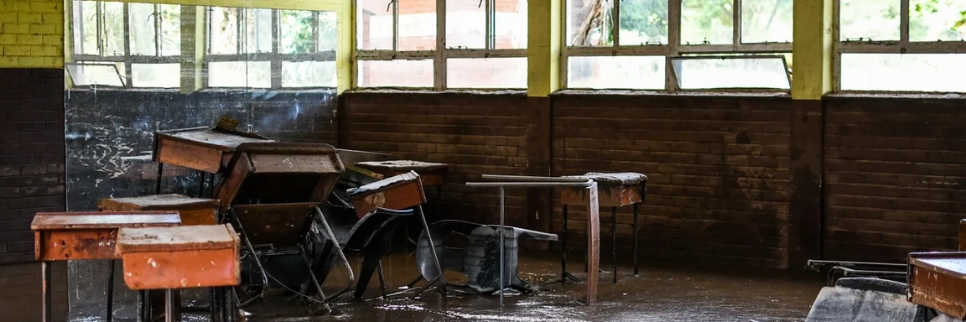Understanding Upper Secondary Education in Pakistan

- August 22, 2024
- 2293
Upper Secondary Education in Pakistan plays a pivotal role in shaping the academic and professional futures of students. This stage of education, which covers the final years of schooling before higher education, is crucial for students’ academic and career paths. This article explores the structure, challenges, and importance of Upper Secondary Education in Pakistan.
Structure of Upper Secondary Education
Upper Secondary Education in Pakistan typically includes grades 11 and 12, known as Intermediate or HSC (Higher Secondary Certificate). This phase is divided into two main streams:
1. Pre-Medical Stream
The Pre-Medical stream is designed for students interested in pursuing careers in medicine, pharmacy, and related fields. The curriculum includes subjects such as:
- Biology
- Chemistry
- Physics
- Mathematics (optional, depending on the institution)
2. Pre-Engineering Stream
The Pre-Engineering stream caters to students aiming for careers in engineering, architecture, and technical fields. Subjects in this stream include:
- Mathematics
- Physics
- Chemistry
- Computer Science (optional)
In addition to these, there are also Humanities and Commerce streams available, each tailored to different career paths and interests.
Curriculum and Examination
The curriculum for Upper Secondary Education is set by the Board of Intermediate and Secondary Education (BISE) in each province. It encompasses a variety of subjects designed to provide a comprehensive education.
Curriculum Details
-
Core Subjects: Each stream has core subjects that students must study. For instance, the Pre-Medical stream focuses on Biology, Chemistry, and Physics, while the Pre-Engineering stream emphasizes Mathematics, Physics, and Chemistry.
-
Elective Subjects: Students may also choose elective subjects based on their interests and future career plans. For example, Computer Science is an elective option for Pre-Engineering students.
-
Practical Work: Practical work and laboratory sessions are an integral part of the curriculum, especially for the science streams. These sessions help students apply theoretical knowledge in practical settings.
Examinations
The Intermediate exams are held at the end of grade 12 and are crucial for students’ progression to higher education. These exams are conducted by various BISE boards across the country, including:
- BISE Lahore
- BISE Karachi
- BISE Islamabad
- BISE Peshawar
The results of these exams play a significant role in university admissions and career opportunities.
Challenges Faced by Upper Secondary Education
Despite its importance, Upper Secondary Education in Pakistan faces several challenges:
1. Access and Equity
One of the significant issues is the disparity in access to quality education across different regions. Students in rural areas often face challenges such as:
- Lack of Resources: Limited access to textbooks, laboratory facilities, and experienced teachers.
- Infrastructural Deficiencies: Poorly maintained school buildings and inadequate facilities.
2. Quality of Education
The quality of education can vary significantly between institutions. Key challenges include:
- Outdated Curriculum: Some schools follow outdated curricula that do not align with modern educational standards.
- Teacher Training: Inadequate training for teachers, affecting their ability to deliver high-quality education.
3. Examination Pressure
The examination system in Pakistan is highly competitive, leading to significant pressure on students. This pressure can result in:
- Stress and Anxiety: High-stakes exams often lead to stress and anxiety among students.
- Exam-Driven Learning: Focus on rote learning and memorization rather than critical thinking and problem-solving skills.
Importance of Upper Secondary Education
Upper Secondary Education is crucial for several reasons:
1. Career Preparation
This stage of education helps students prepare for their chosen career paths. By selecting specific streams and subjects, students gain the necessary knowledge and skills for their future professions.
2. Higher Education Opportunities
Successful completion of Intermediate education opens doors to higher education opportunities, including:
- Undergraduate Programs: Admission to universities and colleges for various degree programs.
- Professional Courses: Specialized courses in fields such as medicine, engineering, and business.
3. Personal Development
Beyond academics, Upper Secondary Education also contributes to:
- Skill Development: Enhancement of skills such as critical thinking, problem-solving, and communication.
- Socialization: Opportunities for students to engage in extracurricular activities, fostering personal growth and development.
Recent Reforms and Developments
In recent years, there have been efforts to reform and improve Upper Secondary Education in Pakistan. Key reforms include:
1. Curriculum Modernization
There is an ongoing effort to update and modernize the curriculum to align with international standards. This includes:
- Incorporating New Technologies: Integrating technology and digital resources into the curriculum.
- Focus on Critical Thinking: Shifting from rote learning to developing critical thinking and problem-solving skills.
2. Teacher Training
Improving teacher training programs to enhance the quality of education. This includes:
- Professional Development: Providing ongoing professional development opportunities for teachers.
- Certification Programs: Implementing certification programs to ensure teachers are well-qualified.
3. Infrastructure Improvement
Efforts are being made to address infrastructural deficiencies, including:
- Building New Schools: Construction of new schools and upgrading existing facilities.
- Provision of Resources: Ensuring schools have access to necessary educational resources and technology.
Conclusion
Upper Secondary Education in Pakistan is a crucial stage in a student’s academic journey, providing the foundation for higher education and career opportunities. Despite facing several challenges, ongoing reforms aim to improve the quality and accessibility of education. By addressing these challenges and focusing on continuous improvement, Pakistan can enhance its educational system and better prepare students for the future.











